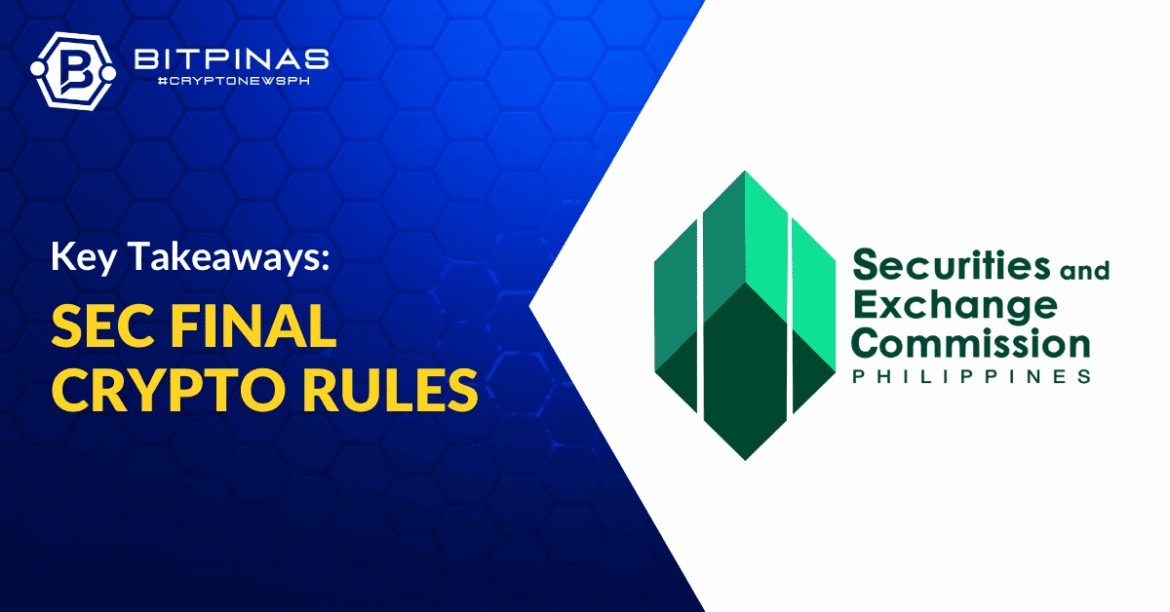The Philippine Securities and Exchange Commission (SEC) issued the final guidelines that significantly impact how crypto-related content can be shared in the country, with a strong emphasis on the exception that the educational material is created in “good faith.”
This article aims to discuss key takeaways from these guidelines based on the official memorandum of the regulator.
Provisions on Marketing
On May 30, 2025, the SEC released the final rules for Crypto-Asset Service Providers (CASPs).
One of the key highlights of the rules is Section 7, which outlines marketing guidelines that apply not only to crypto entities but also extend to content creators, key opinion leaders (KOLs), and influencers.
The definition of “marketing” now includes nearly all public content, such as:
- Social media posts
- Events and meetups
- Airdrops
- Educational content
One of the key provisions requires CASPs to register and report all third-party marketers to the SEC. CASPs are also held jointly liable for any violations committed by these agents.
Content Made in Good Faith: What is it?
Educational content is not automatically exempt from regulation.
Under Section 7.3.6 of the 2025 SEC Rules on CASPs, educational content is only considered “in good faith and purely educational” if the creator does not receive any form of value, user data, or non-monetary benefits in return.
However, creators such as teachers or lecturers may receive reasonable payment, as long as it is strictly for producing the content and not tied to any promotional activity.
The SEC clarified that if the content creator receives compensation related to marketing, such as sponsorships, affiliate links, or promotional tokens, the material will no longer be considered purely educational.
Those who fail to meet these conditions may be required to register as financial advisers or face penalties for violating the SEC’s marketing regulations.
In his new video, GCash’ Head of Crypto Luis Buenaventura clarified that the SEC’s new crypto rules are not targeting educational content but rather unregistered crypto operations. He said influencers must only promote platforms that are officially registered as CASPs with the SEC and as Virtual Asset Service Providers (VASPs) with the BSP.
Key points for content creators and influencers:
- Only registered CASPs like Coins.ph and PDAX may be legally promoted.
- Influencers and marketers must be registered businesses in the Philippines, often as marketing agencies or firms.
- Any form of compensation—including cash or valuable gifts like luxury items—qualifies a person as a regulated professional.
- Those promoting unregistered platforms could be in violation of SEC rules, regardless of how the promotion is done (e.g., posts, videos, events).
- Fans or unpaid individuals casually discussing crypto are not the focus of enforcement.
General Provisions
- Scope and Application: Applies to all CASPs and third-party marketers.
- Crypto-assets are officially classified as financial products under the FCPA when used as investments.
- Licensing and Registration: CASPs must be licensed by the SEC.
- Unlicensed crypto-related services and public offerings are prohibited.
- ICOs that qualify as securities must register under the Securities Regulation Code (SRC).
- Public Offering and Disclosure: Any public offer of crypto-assets must include a disclosure document, submitted to the SEC and made public 30 days before marketing.
- The document must detail the issuer, features, risks, rights, obligations, and technology used, along with risk warnings.
- Some non-investment tokens (like loyalty points) may be exempt, under strict conditions.
- AML/CFT Compliance: CASPs are now covered persons and entities under the AMLA, subject to supervision by the SEC and AMLC.
- ICOs, exchanges, and intermediaries must adopt AML/CFT/CPF programs.
- Regulatory and Enforcement Powers: The SEC has strong visitorial powers, including audits, inspections, and the ability to impose orders, fines, and penalties.
- Cease and desist orders
- Fines up to ₱10 million per violation (+ ₱10,000 per day of continuing penalty)
- Criminal penalties, including up to 5 years imprisonment and/or fines up to ₱2 million
- Disgorgement of profits and civil remedies on behalf of consumers
Worth reading: #CryptoPH Community Reacts to SEC’s Final Rules on Crypto-Asset Service Providers
This article is published on BitPinas: From Education to Registration: Key Takeaways From SEC Final Crypto Rules
What else is happening in Crypto Philippines and beyond?

